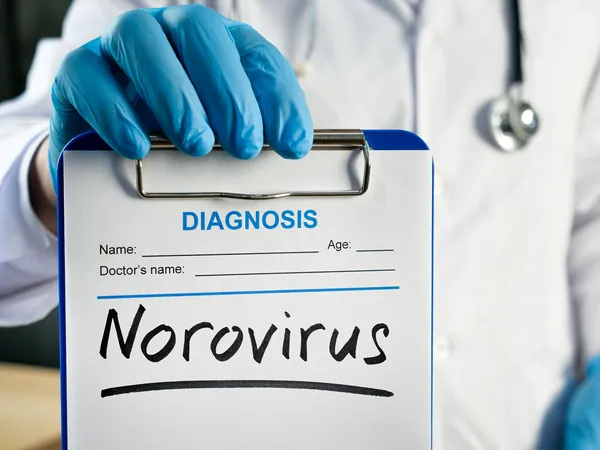
Alarming Rise in Norovirus Outbreaks for the 2024-2025 Season - What You Need to Know!
2025-01-09
Author: Amelia
Introduction
As we head into the winter months, a new report from the CDC reveals a concerning trend: between August 1 and December 11, 2024, a staggering 495 norovirus outbreaks have been documented across the United States. This marks a notable increase compared to previous seasons, particularly when compared to the data from 2012 to 2020 and the years 2021 to 2024.
What is Norovirus?
Norovirus, often misleadingly referred to as the "stomach flu," is a highly contagious virus responsible for acute gastroenteritis, which leads to severe vomiting, diarrhea, and foodborne illnesses. Importantly, norovirus is not related to the influenza virus. The CDC indicates that symptoms typically arise between 12 to 48 hours after exposure, with most affected individuals recovering within 1 to 3 days. However, it's crucial to note that individuals can still spread the virus for several days after they start feeling better.
Understanding Outbreaks
The CDC categorizes a norovirus outbreak as occurring when two or more similar illnesses are linked to a common source, whether suspected or confirmed through laboratory testing. The current surge can be attributed to the GII.17 strain, which accounted for nearly 70% of the genotype distribution among recent outbreaks, as reported by CaliciNet, a network of public health laboratories. Jan Vinjé, head of the CDC's CaliciNet system, expressed caution, stating, "While it is too early to assess the severity of this strain, lower population immunity may be key to understanding the early uptick in cases."
Who is Affected?
The risk of norovirus infection is prevalent among all age groups, with children under 5, older adults, and individuals with weakened immune systems being more susceptible to severe symptoms. The most common signs include diarrhea, vomiting, and stomach pain, accompanied by additional symptoms like fever, headache, and body aches.
Preventative Measures
So, how can you protect yourself and your loved ones from this relentless virus? The CDC offers essential preventative measures: 1. Wash your hands thoroughly and frequently. 2. Cook shellfish fully and wash fruits and vegetables properly. 3. Regularly disinfect and clean surfaces that may be contaminated. 4. Wash laundry using hot water. 5. For parents of young children, be vigilant for any signs of dehydration and ensure ample hydration to replace lost fluids.
Conclusion
As we navigate this seasonal wave of norovirus outbreaks, staying informed and adhering to hygiene practices is vital. Remain cautious, particularly in crowded settings, and prioritize washing your hands to help curb the virus's spread. Stay safe, and share this information to help others protect themselves against norovirus!



 Brasil (PT)
Brasil (PT)
 Canada (EN)
Canada (EN)
 Chile (ES)
Chile (ES)
 Česko (CS)
Česko (CS)
 대한민국 (KO)
대한민국 (KO)
 España (ES)
España (ES)
 France (FR)
France (FR)
 Hong Kong (EN)
Hong Kong (EN)
 Italia (IT)
Italia (IT)
 日本 (JA)
日本 (JA)
 Magyarország (HU)
Magyarország (HU)
 Norge (NO)
Norge (NO)
 Polska (PL)
Polska (PL)
 Schweiz (DE)
Schweiz (DE)
 Singapore (EN)
Singapore (EN)
 Sverige (SV)
Sverige (SV)
 Suomi (FI)
Suomi (FI)
 Türkiye (TR)
Türkiye (TR)
 الإمارات العربية المتحدة (AR)
الإمارات العربية المتحدة (AR)